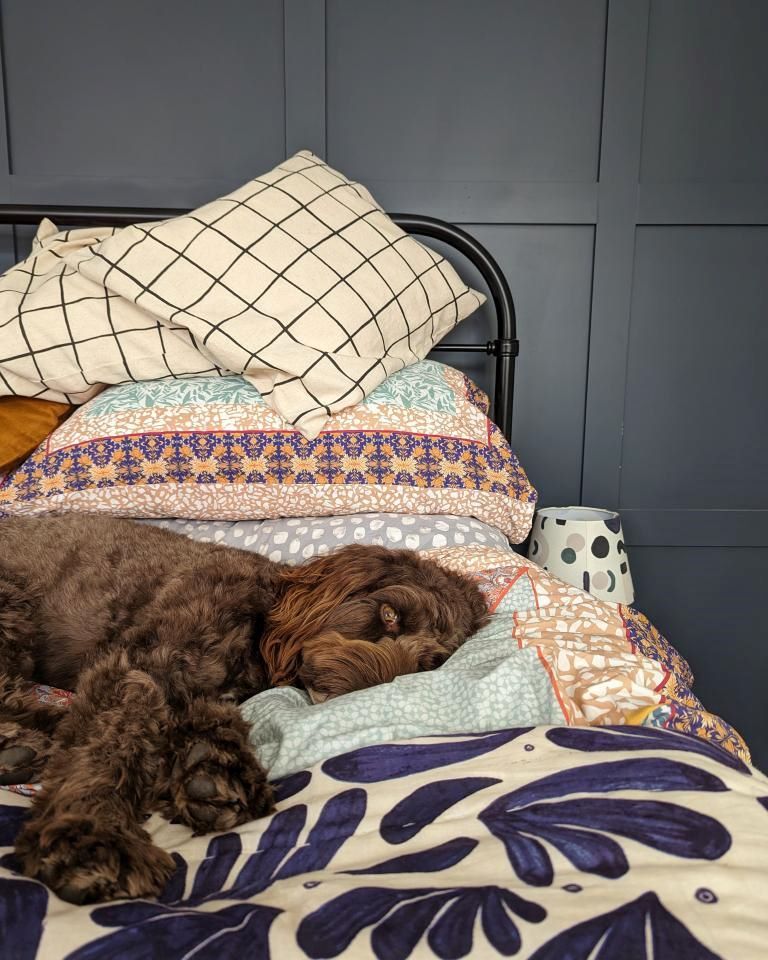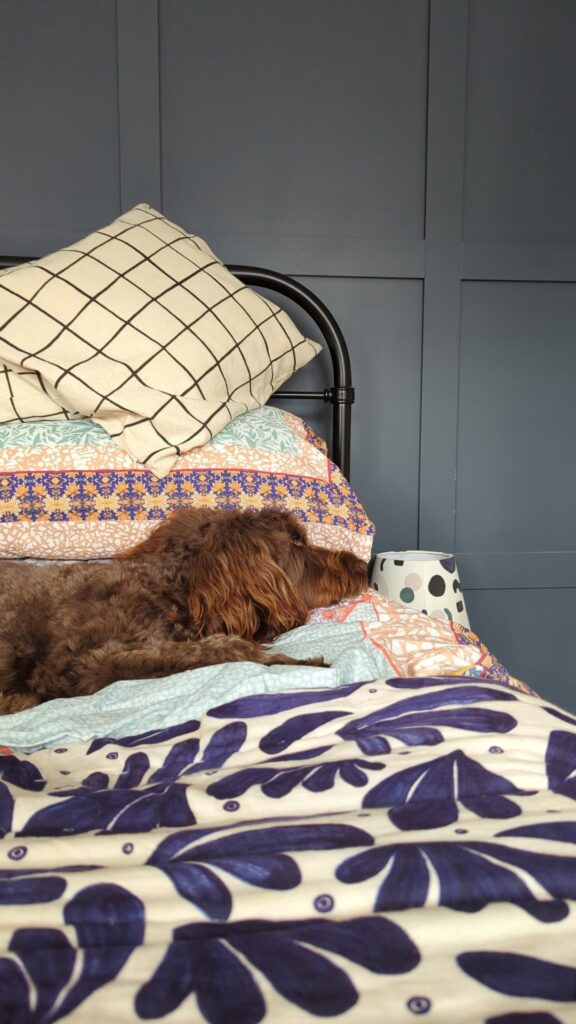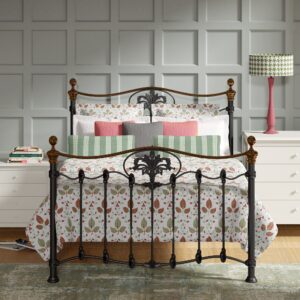Are you one of the 62% of pet owners who share their bed with a furry companion? For many of us, the idea of sharing our bedroom with our pets brings a sense of comfort and companionship. But is sleeping with a pet really a good idea? Let’s delve into the pros and cons and explore how to strike the right balance to ensure a restful night’s sleep.

Do pets belong in the bedroom?
Is it bad to sleep with pets? This is an age-old debate in the pet-loving community. While some people swear by the benefits of sleeping with pets, others prefer to keep their sleeping space a pet-free zone. Ultimately, the decision hinges on your personal preferences and circumstances.
For some, having their pet close by at night can provide security and comfort. The rhythmic sound of their breathing or the gentle warmth of their presence can lull you into a peaceful sleep. However, pets can also be disruptive, from hogging the bed to making noise and waking you in the night.

Pros and cons of pets in the bedroom
Let’s break down the main benefits and drawbacks of sleeping with pets:
Pros
- Comfort and companionship: Pets offer emotional support and companionship, which can be especially comforting during the quiet hours of the night.
- Stress relief: A survey by Psychology Today found that sleeping with a pet can reduce stress by 67% and lower anxiety by 60%. Many pet owners find it heartwarming to wake up to their pet’s sound or infectious positive energy.
- Warmth: Having a furry friend to snuggle up with can provide extra warmth and cosiness in colder weather.
- Security: Many people feel safer with their pets nearby, especially if they live alone.
Cons
- Disruption: Research suggests that pet owners are more likely to experience disturbed sleep, with 20% of pet owners complaining of behaviours such as snoring or moving around.
- Allergies: For allergy sufferers, sharing a bedroom with a furry friend can exacerbate symptoms and disrupt sleep.
- Hygiene concerns: Pets can bring dirt and other allergens from outside, which may affect air quality and cleanliness in the bedroom. Keeping pets out of the bedroom can help maintain a cleaner and healthier sleeping environment for everyone in the household.
- Boundaries: Allowing pets in the bedroom can blur boundaries and reinforce undesirable behaviours, such as begging or jumping on the bed. Pets can be notorious for chewing, scratching and shedding which can wreak havoc on bedroom decor.
Steps to resolve issues with pets in the bedroom
Struggling to find harmony between your pet and your sleep routine? Here are five easy steps you can take to address common issues:
- Establish boundaries: Set clear boundaries for your pet’s behaviour in the bedroom, such as where they are allowed to sleep and whether or not they are allowed on the bed.
- Create a comfortable sleeping space: Provide your pet with a comfortable bed or designated sleeping area in the bedroom to encourage them to stay off your bed.
- Stick to a routine: Establish a bedtime routine for your pet to help them wind down and prepare for sleep, such as a walk or play session before bed.
- Address disruptive behaviour: If your pet’s behaviour is disrupting your sleep, address the underlying cause, whether it’s boredom, anxiety, or discomfort.
- Seek professional help: If you’re unable to resolve issues with your pet’s behaviour on your own, consider seeking guidance from a vet or animal behaviourist.

Final thoughts
Whether or not pets belong in the bedroom is a personal decision that depends on various factors, including your lifestyle, preferences, and your pet’s behaviour. There are pros and cons of sleeping with a pet, for some allowing pets in the bedroom is a non-negotiable aspect of ownership, while for others it’s simply not a feasible option.
Whether it’s setting clear boundaries, implementing training techniques, or investing in pet-friendly bedding and accessories, it’s possible to find a balance that allows you to enjoy their comfort while still getting the restful sleep you need.



